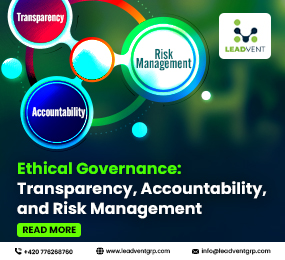Africa’s ESG and Climate Journey: From Commitment to Impact
Africa stands at a unique intersection in the global climate conversation. Home to rich natural resources, a growing population, and untapped clean energy potential, the continent faces both significant vulnerabilities and immense opportunities. As the world intensifies its focus on Environmental, Social, and Governance (ESG) strategies, Africa is increasingly stepping forward—not just as a stakeholder, but as a leader shaping its own sustainable future.
Across the continent, ESG adoption is becoming more than just a corporate checkbox. It’s emerging as a critical tool for long-term development, risk management, and attracting investment. From renewable energy projects in Kenya to sustainable agriculture initiatives in Ghana, African governments and businesses are beginning to align their operations with global sustainability standards.
Environmental Commitments
Africa contributes less than 4% of global greenhouse gas emissions, yet it bears the brunt of climate change impacts—ranging from prolonged droughts and water scarcity to devastating floods and food insecurity. As a result, many African nations are embedding climate resilience into their national strategies. Initiatives such as reforestation, nature-based solutions, and solar energy investments are gaining momentum, often supported by international financing.
Social Impact at the Core
Social sustainability in Africa goes beyond inclusion and equity. It also encompasses access to clean water, healthcare, education, and job creation. ESG frameworks are encouraging businesses to invest not just in profits, but in people. In regions where youth unemployment and poverty are high, companies that invest in skills development and inclusive supply chains are making a real difference.
Governance and Transparency
Strong governance is the backbone of ESG success. Several African countries are updating their regulatory frameworks to include ESG disclosures, sustainability reporting, and anti-corruption policies. This shift is increasing investor confidence and encouraging ethical practices across both public and private sectors.
However, challenges remain. Limited access to ESG data, inconsistent regulatory enforcement, and funding gaps are real hurdles. Yet, the progress being made—often under difficult conditions—is inspiring. Africa's ESG journey is marked by collaboration, innovation, and a growing sense of ownership over its climate narrative.
Conclusion
Africa’s ESG and climate journey is not about catching up; it's about shaping a path that reflects its own priorities and strengths. By investing in clean energy, empowering communities, and strengthening governance, the continent is building a foundation for sustainable prosperity. As global interest in ESG grows, Africa has the opportunity to lead with purpose, authenticity, and resilience.
Takeaway Points:
- Africa is adopting ESG as a development tool, not just a compliance measure.
- The continent faces high climate vulnerability but contributes little to global emissions.
- Key ESG focuses include renewable energy, social inclusion, and transparent governance.
- Challenges include limited ESG data, policy gaps, and funding needs.
- Africa’s climate and ESG leadership is rising, grounded in local solutions and global partnerships.
Learn more on our website: https://www.leadventgrp.com/event/esg-and-climate-africa-summit/register
For more information and group participation, contact us: [email protected] .
Leadvent Group - Industry Leading Events for Business Leaders!
www.leadventgrp.com | [email protected]
















